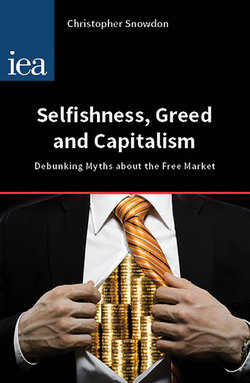Читать книгу Selfishness, Greed and Capitalism - Christopher Snowdon - Страница 13
На сайте Литреса книга снята с продажи.
2. Economists believe people are perfectly rational
Оглавление‘Economics is not a science’, writes Suzanne Moore in The Guardian, ‘it’s not even a social science. It is an antisocial theory. It assumes behaviour is rational’ (Moore 2012). In The Courageous State, Richard Murphy (2011: 77) states that economists believe that ‘there is perfect information available in markets to inform decisions which are then made optimally. In other words, they assume that we all know everything we need to know about quite literally everything’.
They do not. Rationality is an important concept in economics and economists have different views about the extent to which people are rational, but as Tyler Cowen notes: ‘Economists accept no single set of assumptions about rationality, nor any one set of assumptions about the role of rationality assumptions in economic theory and practice’ (Cowen 2004: 233). This was highlighted when Eugene Fama and Robert Shiller both won the Nobel Prize in Economics in 2013 despite having starkly different views about the rationality of people and markets. Game theorists tend to assume that people are highly rational, and some theoretical economic models are based on the assumption that individuals are logical and perfectly informed. This does not mean, however, that economists believe that the population is entirely rational, well-informed, intelligent or wise. Nor can the field of economics be demolished with one of the almost infinite number of examples of human foolishness.
